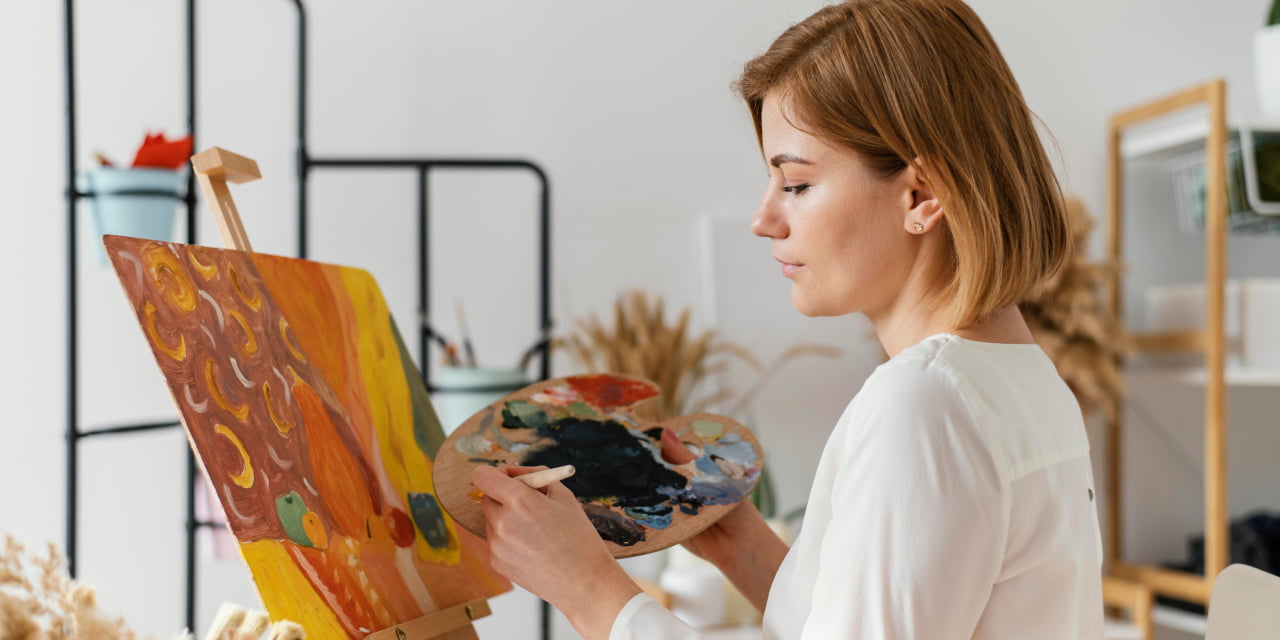Self-discovery is a thrilling, lifelong adventure. During this process, we’re looking at the layers of ourselves to find out who we truly are. It’s about:
- Unearthing our desires
- Confronting limiting beliefs
- Cultivating a genuine sense of self-worth
The process can be inherently rewarding. However, it also often feels daunting and confusing. That’s where skilled help can be an invaluable compass. Working with a therapist, you can learn techniques to navigate your inner world. It’s done through a safe and supportive space. With a therapist, you can:
- Explore emotions
- Find recurring patterns
- Gain insights into how your past impacts your present
The process can lead to profound shifts in your perspective. It fosters a deeper understanding of your values, strengths, and limits. It empowers you to become the author of your life story. This further guides you towards a more authentic, fulfilling, and actualized existence.
Building Self-Awareness Through Therapy
Self-reflection is fundamental to personal growth. This process lets us know our thoughts, feelings, and behaviors. With it, we find out how they impact our interactions with the world. And professional help provides a safe and supportive space to cultivate this skill.
With your therapist, you’ll have open and honest conversations. Through them, you can gain deeper insights into your inner world. The specialist helps find recurring patterns that usually hinder our well-being. They include negative thought patterns or avoidance behaviors. With a doctor, we can explore past experiences and their impact on the present. This way, we can understand the root causes of our emotions.
Psychotherapy uses many tools to enhance the skill of “looking inward.” These self-discovery tools include:
- Mindfulness. Meditation and deep breathing are common examples. With them, we become more aware of our present moments. It includes thoughts, feelings, and sensations.
- Journaling. Also, writing about thoughts and emotions provides valuable insights into personal patterns.
- Guided Imagery. Besides, visualizing positive experiences or desired outcomes can also help. This approach helps us explore our values and wishes.
- Dream Analysis. Exploring the meaning of dreams can offer insights into unconscious thoughts and emotions.
As a result, these methods facilitate a deeper understanding of the self. It lets us make conscious and informed decisions.
Tools for Self-Reflection in Therapy

Now, let’s take a closer look at each method:
- Journaling. This is the act of putting thoughts and feelings down on paper. It can be incredibly revealing. It can help find recurring themes. With it, we can track emotional patterns and explore deep-seated beliefs. Therapists often encourage people to journal regularly. And they may provide prompts or specific journaling exercises to guide the process.
- Guided Imagery. This involves using your imagination to create vivid mental images. By visualizing positive experiences or desired outcomes, you can explore your values. You can set goals and cultivate a sense of inner peace. Guided Imagery can be helpful in reducing stress, controlling pain, and improving well-being.
- Mindfulness Exercises. Popular practices are meditation and deep breathing. They cultivate present-moment awareness. By focusing on the here and now, we can become more attuned to our internal experiences. It includes thoughts, feelings, and bodily sensations. This increased awareness allows for greater understanding and emotional regulation.
- Dream Analysis. Exploring the symbolism and underlying meaning of your dreams can offer valuable insights. It’s about your unconscious thoughts, emotions, and desires. Dream analysis can help you understand recurring themes. It helps find unresolved conflicts and gain a deeper understanding of yourself.
- Guided Questioning. Therapists often use open-ended questions. They help encourage clients to delve deeper into their thoughts and feelings. These questions may explore past experiences, current challenges, and future aspirations. Guided questioning can help find underlying assumptions. It can help uncover hidden motivations and gain new perspectives on life.
Enhancing Emotional Intelligence
This term describes the ability to know and control emotions. This vital aspect of life influences relationships, decision-making, and well-being. However, how can we develop these skills? Personal discovery therapy provides a valuable space to improve this part of ourselves. Through professional help, we can:
- Find and Label Emotions. Your therapist helps you recognize and name the emotions accurately. This is the first step towards controlling them.
- Find Out the Triggers. During therapy sessions, we explore past experiences and current stressors. Then, we can find the triggers that lead to emotional responses.
- Develop Coping Mechanisms. A doctor helps develop healthy coping tactics to control emotions. For example, anger, anxiety, and sadness. These tactics include relaxation, mindfulness, and assertiveness training.
- Improve Empathy. By exploring emotional experiences, we can develop greater empathy and compassion for others. This increased understanding fosters stronger relationships. And this further enhances social interactions.
Therapy offers a structured path to cultivate emotional intelligence. Through finding emotions, understanding triggers, developing coping mechanisms, and improving empathy, we can enhance emotional skills. This process leads to improved relationships, better decision-making, and increased well-being.
Overcoming Mental Barriers to Self-Discovery
The path to self-discovery journey is often paved with mental and emotional barriers. They include:
- Uncertainty about the future. This involves anxiety about what can happen in a job, relationship, or life.
- Lack of control. Feeling like you don’t have control over what might happen can be scary.
- Imagining the worst-case scenario. When you don’t know what to expect, it’s easy to let your mind conjure up negative possibilities.
These factors can make self-reflection more difficult. These issues can manifest as doubt, perfectionism, or resistance to change.
Therapy provides a safe and supportive space to address these challenges. Within the therapeutic relationship, we can:
- Confront Fears. The therapeutic setting allows us to explore our fears. Those include the fear of failure, judgment, or uncovering painful truths. By acknowledging and addressing these issues, we can begin to dismantle them.
- Control Anxiety. It can be a significant barrier to reflection. A doctor provides tools and methods to control anxiety. It includes mindfulness and relaxation. These tools can help us feel more grounded and present. It allows for deeper exploration.
- Process Past Trauma. Past traumas impact our sense of self. And it doesn’t matter whether they are big or small. The doctor offers a safe and supportive space to process these issues. They help understand their impact on the present and develop coping mechanisms.
Therapy helps us begin a more authentic and fulfilling journey of personal discovery. Overcoming fear, anxiety, and past trauma is crucial. With the right approach and safe space, you can confront these challenges and dismantle fears. This journey empowers us to understand ourselves. We can foster growth and self-acceptance.
Strengthening Personal Identity

One of the key aspects of strengthening self-awareness in therapy is understanding our values, beliefs, and life goals. Psychotherapy can help us find:
- What truly matters to us
- What we stand for
- What we want to achieve in life
This process can lead to greater clarity and purpose. It guides us towards a more fulfilling and meaningful existence.
By exploring our values and beliefs, we can make more conscious and intentional choices. We can align our actions with our deepest values. It will lead to greater satisfaction and a sense of purpose. Understanding our life goals provides us with direction and motivation. It gives us a sense of meaning and purpose in our daily lives.
Through psychotherapy, we can also explore and address any incongruence between:
- Our internal values
- Our external behaviors
The process of personal discovery can lead to greater self-acceptance and a stronger sense of personal integrity.
Sustaining Growth Beyond Therapy
Professional counseling provides a valuable foundation for personal growth. However, the journey of self-awareness therapy is ongoing. The skills and insights gained in psychotherapy can be applied to everyday life to continue nurturing growth:
- Reflection in Everyday Situations. You can apply this habit to everyday situations. For example, pausing to reflect on thoughts, feelings, and behaviors. Through this, we can gain deeper insights into our patterns. This helps us make more mindful decisions.
- Mindfulness in Daily Life. The practices we learn in therapy can be used in our routines. It’s about meditation and deep breathing. These approaches help us remain present and aware of thoughts and feelings. This can lead to greater recognition and emotional regulation.
- Communicating with Compassion. The therapeutic relationship fosters compassion. This approach can be extended to self-talk. It encourages individuals to treat themselves with kindness and understanding.
- Setting and Achieving Personal Goals. The goal-setting skills developed in psychotherapy can be applied to personal and professional goals. By breaking down large goals into smaller, manageable steps, we can make progress towards their aspirations.
Self-reflection therapy provides a framework for personal growth. However, the true power lies in using these insights and skills in everyday life. Embark on a transformative journey with our mental health platform. Connect with experienced therapists specializing in personal growth. We provide a safe space to explore your inner world. Take the first step and unlock your true potential.




